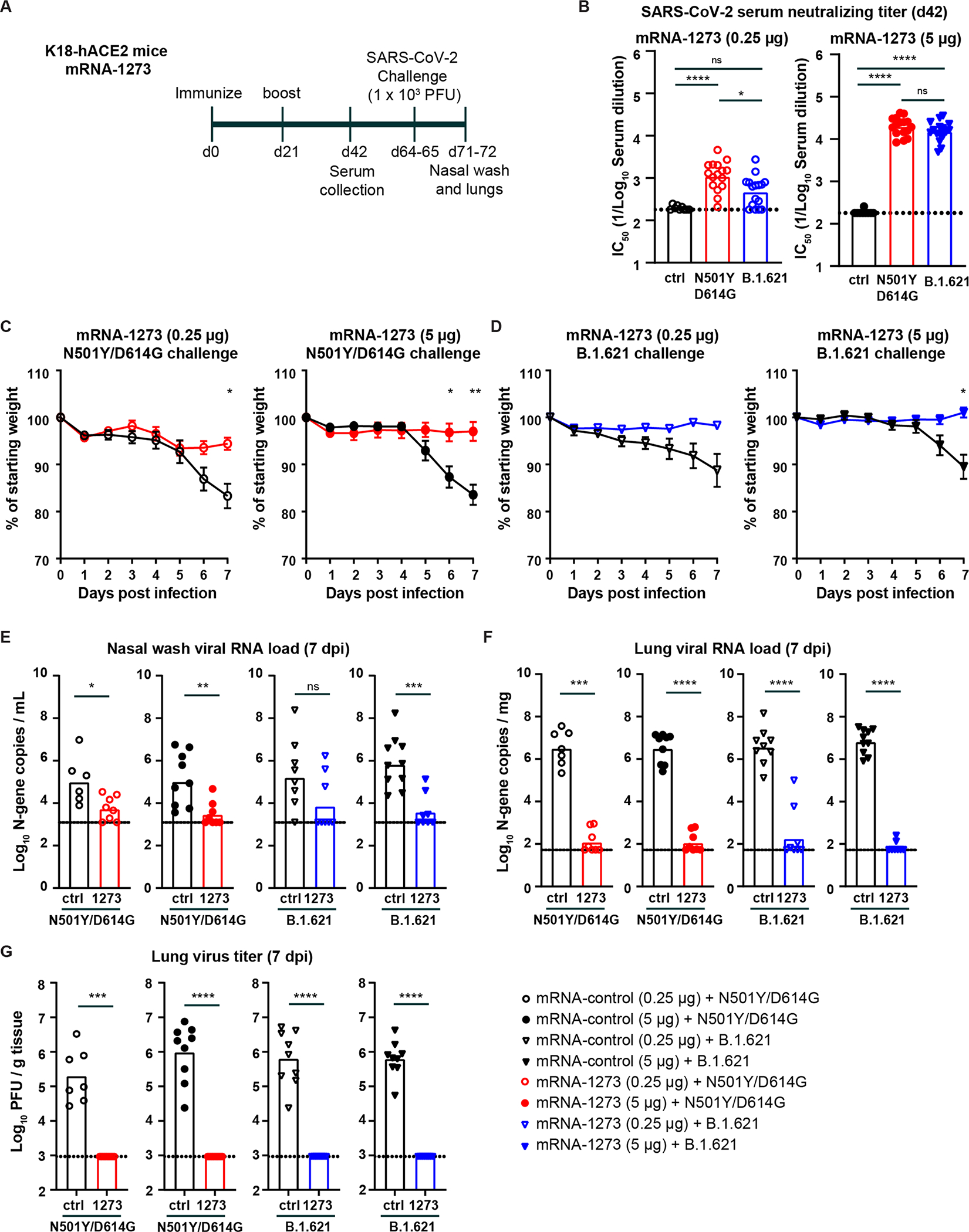Figure 2. mRNA-1273 protects K18-hACE2 transgenic mice against challenge with N501Y/D614G and B.1.621.

(A) Experimental setup. (B) Serum neutralizing titer (IC50) against WA1/2020 N501Y/D614G (red circles) or B.1.621 (blue triangles) from K18-hACE2 mice immunized twice with 0.25 μg (open symbols) or 5 μg (closed symbols) of mRNA-1273 or mRNA control vaccine (*** P < 0.001, **** P < 0.0001 by non-parametric one-way ANOVA with a Dunn’s post-test). (C-D) Mean ± SEM of weight loss/gain in SARS-CoV-2 challenged mice (** P < 0.01, * P < 0.05, ns = not significant by two-way ANOVA). (E-G) K18-hACE2 mice were challenged with 103 PFU of the WA1/2020 N501Y/D614G (red circles) or B.1.621 (blue triangles), and nasal washes (E) and lungs (F-G) were collected for analysis of viral RNA levels by RT-qPCR (E) and infectious virus by plaque assay (F-G) (**** P < 0.0001, *** P < 0.001, ** P < 0.01, * P < 0.05, ns = not significant by Mann-Whitney test). (B, E-G) Bars indicate the geometric mean values, and dotted lines are the LOD of the assays. Animals at the limit of detection are arbitrarily assigned this value. These values are combined with those having values above the limit to determine the GMT. The results are from two independent experiments, and each symbol represents an individual animals. See also Figure S1 and S2.
